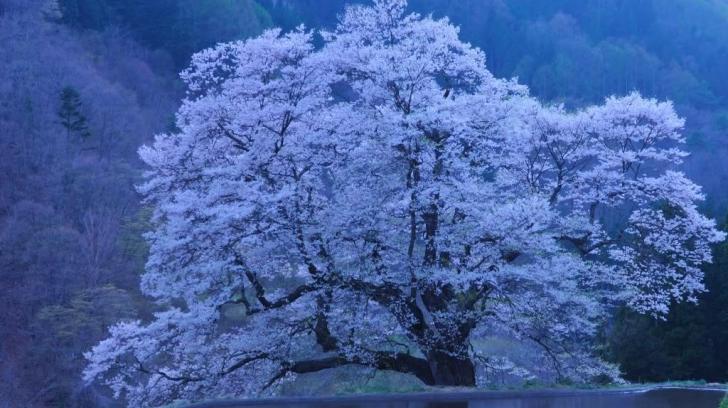
Vimshottari Dasha - Rashi - Gochara - Bhava - Graha - Ratna - Nakshatra - Amsha - Karaka - Varga - Bala
- Traditional Jyotishavidya Sacred Jewels Ratna for Shani
- Serious Shanaicarya reaches maturity = age 36
- [energizing-identifying lagnesha for Makara indriya-lagna]
- [energizing-identifying lagnesha for Kumbha indriya-lagna]
- BPHS Vimshottari MahaDasha of Shani
-
BP Lama commentary Shani Mahadasha
-
[Shani in classroom-7] = [dikbala]
-
[Shani in classroom-10] = [svabhava]
-
[Shani in classroom-11] = [svabhava]
-
[Shani-Mesha] = [nīcha]
-
[Shani-Tula] = [uchcha]
-
[Shani-Makara-Draco] = [svakshetra]
-
[Shani-Kumbha] = [svakshetra] = [mulatrikona if within 0-20 deg]

OM sham shanaishcharaye namah
शनि śani
Professor Shani
Sauri - Sauron
Shanaicarya - Sanisvaraya
Shanaidev Bhagavan
अर्कपुत्र arka-putra = son of Sun
नीलवसन nīla-vasana = dark-blue visage
काल kāla = time
resides in
Makhar
मकर makara = crocodile, dolphin, porpoise
आकोकेर ākokera= aἰγόκερως = aigókeros = goat-horn
मृग mṛga = forest deer, antelope
एण eṇa = black antelope with beautiful eyes
एणदृश् eṇadṛś / मृगदृश् mṛgadṛś = antelope eye
[svakshetra]
Saturan - Sauran - Sćtern - Saturnus
the seventh one
Satu = Saturday
kevan - kaiwan - kiyyun - kaiamanu - khima
kρονος - kronos
Ninurta - Anu - El - Eli -
"The Old Sun // the best Sun"
occupies
Capri-cornus = goat-horn
Drago - The Dragon
QUOTATION from Tenzing Gyatso (1997)
" Progress comes by maintaining constant effort in daily practice."
For God hath not given us the spirit of fear; but of power,
and of
love,
and of a sound mind.
~~ 2 Timothy 1:7
QUOTATION from Book of Job - Iyov 2:12
" With the ancient is wisdom;
and in length of days understanding."

Neuschwanstein Castle

Shani-Makara-Draco = [svakshetra] = sorted by NAKSHATRA-PADA
[regulating-hierarchical Vaishva-2] = MAKARA navamsha = [vargottamsha]
-
France-Queen 1755-1793 Madame Deficit Marie Antoinette
-
La Petite Voie 1873-1897 St. Therese von Lisieux + [Vaishva-Shani-yuti-Chandra-Dhaniṣṭha]
-
POTUS-44 Audacity of Hope 1961- Barack H. Obama + [nīcha-Vaishva-Guru-yuti-Shani-Vaishva]
[populist-connected, profitable-arrayed, cimmunity-economic Uttarāṣāḍha-3] = KUMBHA navamsha
-
Aquero 1844-1879 St. Bernadette of Lourdes + [Uttarāṣāḍha-Shani-yuti-Budha-Śrāvaṇa] + [Uttarāṣāḍha-Shani-yuti-Shukra-Śrāvaṇa]
-
Syriana 1961- drama-activist George Clooney + [Vaishva-Shani-yuti-Chandra-Śrāvaṇa] + [Vaishva-Shani-yuti-Guru-nīcha -Śrāvaṇa]
-
UK Princess 1961-1997 Diana Spencer + [Uttarāṣāḍha-Shani-yuti-Guru-Śrāvaṇa-nīcha]
[conceptual-researching, visionary-guiding, [imaginative-charitable Uttarāṣāḍha-4] = Meena navamsha
-
Homeopathy 1755-1843 Dr. Samuel Hahnemann
-
Twilight of the Idols 1844-1900 Ubermensch Friedrich Nietzsche
-
USA-Sen-Mass 1932-2009 Teddy Kennedy
-
Cleopatra 1932-2011 AIDS activist Elizabeth Taylor + + [Shani-6 mutual drishti Guru-12]
-
Among the Believers 1932-2018 culturalist V.S. Naipaul
-
Ring of Fire 1932-2003 rockabilly Johnny Cash
[Champion-dominator, pioneering-competitive Śrāvaṇa-1] = MESHA navamsha = [navamsha Shani-Mesha-nīcha]
-
Bello Gallico 100-44 BCE Julius Caesar
-
Iran-Shahani 1932-2001 Soraya Esfandiari Bakhtiari +
[heritage-capitalized, financial-acquisitive Śrāvaṇa-2] = URISHA navamsha
-
Realm of Light 1874-1947 painter Nicholas Roerich
-
Standard Oil 1874-1960 philanthropy John D. Rockefeller + [Śrāvaṇa-Shani-yuti-Surya-Śrāvaṇa] + [Śrāvaṇa-Shani-yuti-Budha-Śrāvaṇa] + [Śrāvaṇa-Shani-yuti-Shukra-Śrāvaṇa]
[collaborative-mercantile, messaging-commercial , publishing-explaining, communicative-managing, teamworking-announcing Śrāvaṇa-3] = MITHUNA navamsha
-
England-King 1491-1547 Henry-8-Tudor
-
UK-PM Finest Hour 1874-1965 Winston Churchill
-
POTUS-31-pair Girl Scouts 1874-1944 author Lou Henry Hoover
-
POTUS-31 Challenge to Liberty 1874-1964 Herbert Hoover
-
Avant-gardiste 1933- Beatle-pair Yoko Ono + [Śrāvaṇa-Shani-yuti-Shukra-Śrāvaṇa]
-
Truth Be Told 1933-2021 interviewer Larry King
-
Moral Majority 1933-2007 Rev. Jerry Falwell
-
Top Gun 1962- cinema Tom Cruise + [Śrāvaṇa-Ketu-yuti-Shani-Śrāvaṇa]
-
UK-Princess 2021- Lilibet Diana Sussex
[protective-customary Śrāvaṇa-4] = KARKATA navamsha
-
Socialite 1963- beauty pageants Marla Maples Trump
[dramatizing-showy Dhaniṣṭha-1] = SIMHA navamsha
-
Moneyball 1963- drama-commerce Brad Pit + [Dhanishta-Shani-yuti-Chandra-Vaishva] + [Dhanishta-Shani-yuti-Shukra+Vaishva]
[logical-helping, calculating-logistical , strategic-analyzing, ministering-complaining Dhaniṣṭha-2] = KANYA navamsha
-
Duino Elegies 1875-1926 mystical poet Rainer Maria Rilke
-
Contempt 1934-2025 animal-activist Brigitte Bardot + [Dhaniṣṭha-Shani-yuti-Rahu-Śrāvaṇa]
-
Golden Girls 1934-2010 drama Rue McClanahan + [Dhaniṣṭha-Shani-yuti-Shukra-Śrāvaṇa] + [Dhaniṣṭha-Shani-yuti-Rahu-Dhaniṣṭha]
-
Two Women 1934- luxury eyeframes Sophia Loren + [Śrāvaṇa-Rahu-yuti-Shani-Shravista]
-
Faith 1963-2016 singer-songwriter George Michael
-
How Will I Know 1963-2012 Whitney Houston
-
POTUS-pair-44 Let's Move 1964- Michelle Robinson Obama + [Dhaniṣṭha-Shani-yuti-Surya-Vaishva] + [Dhaniṣṭha-Shani-yuti-Mangala-Vaishva-uchcha]
EXAMPLES
[Shani-1] --- resistance to impulse + obligation to make regular, stepwise movements
= [svakshetra] = [Śaśaka Yoga]
[energizing-identifying lagnesha for Makara - Draco indriya-lagna] [conserving-evaluating dhana-pati for Makara - Draco indriya-lagna]
[identified lagnesha with institutional order and family tradition dhana-pati] [lawful resistance from entrenched social regulators] [must speak under pressure from institutional agents]
[restrained physical normalization] [mandatory conformance with public behavioral rules] [heavy workload may reinforce muscular independence]
[respectful self-disciplined embodiment of heritage values dhana-pati] [naturally receives social approval due to conventional conduct]
[structural vitality and speech may be limited by fear of legal bureaucracy] [individual character may be shaped by class-conscious elders, who hail from conservative lineage dhana-pati]
-
Aquero 1844-1879 St. Bernadette of Lourdes [populist-connected Uttarāṣāḍha-3] + [Uttarāṣāḍha-Shani-yuti-Budha-Śrāvaṇa] + [Uttarāṣāḍha-Shani-yuti-Shukra-Śrāvaṇa]
-
Golden Girls 1934-2010 drama Rue McClanahan [logical-helping Dhaniṣṭha-2] + [Dhaniṣṭha-Shani-yuti-Shukra-Śrāvaṇa] + [Dhaniṣṭha-Shani-yuti-Rahu-Dhaniṣṭha] ??
***
-
Syriana 1961- drama-activist George Clooney [profitable-connected Uttarāṣāḍha-3] + [Vaishva-Shani-yuti-Chandra-Vaishva] + [Vaishva-Shani-yuti-Guru-nīcha -Śrāvaṇa]
Shani-1-Makara
" One should be careful in speech, restrained in one's thoughts and do no wrong with one's body."
~~ Pema Chodron
[Shani-2] = [svakshetra] = [resistance to historical values + obligation to lawfully conserve]
[acquisitive-evaluative dhana-pati for Dhanus - Haya indriya-lagna] [collaborative-communicative sahaja-pati for Dhanus - Haya indriya-lagna]
[respectfully formal hierarchical speech] [retains the traditional class-conscious language] [burdensome family duties]
[obligatory continuation of old social levels] [may have a paucity of true knowledge yet quite smug due to structured material hoarding] [mandatory conventional lineage dhana-pati storytelling ]
[speaks cautiously about sibling-cousins sahaja-pati who maintain orderly distribution of family affluence] [strictly traditional status-ranked values]
[sensual memories filtered through rigidly restrictive rules] [socially regulated truth-telling about preserving collections]
[staunch resistance against changes to normalized narratives] [must keep records of old songs and bardic poems about the true law]
[materialistic elders may require the preservation of historically fixed values of social-standing and oratorical stateliness]
-
Socialite 1963- beauty pageants Marla Maples Trump [protective-customary Śrāvaṇa-4]
[Shani-3] = [svakshetra]
[busy-collaborative sahaja-pati for Vṛścika indriya-lagna] [homebound-anchoring bandesha for Vṛścika indriya-lagna]
[drafty old stone parlors] [rigidly class-conscious cohort] [hierarchical business systems]
[separative conventional process handling sahaja-pati] [legally fixed scheduling itineraries] [required messaging about governance security bandesha]
[strictly ordered mental regulation] [must deliver respectfully limited scripted announcements] [must conduct structured discussions about social position]
[status-minded sibling-cousin may be institutional instructor, cautious merchant, normalizing manager]
-
UK Princess 1961-1997 Diana Spencer [populist-connected Uttarāṣāḍha-3] + [Uttarāṣāḍha-Shani-yuti-Guru-Śrāvaṇa-nīcha]
-
POTUS-pair-44 Let's Move 1964- Michelle Robinson Obama [calculating-logistical Dhaniṣṭha-2] = [ātmakāraka] + [Dhaniṣṭha-Shani-yuti-Surya-Vaishva] + [Dhaniṣṭha-Shani-yuti-Mangala-Vaishva-uchcha]
[Shani-4] = stomach pressure + resistance to parents + must protect the home culture
= [svakshetra] = Śaśaka Yoga]
[Yogakaraka homebound-securing bandesha for Tulā indriya-lagna] = [Yogakaraka speculative-creative vidya-pati for Tulā indriya-lagna]
[necessary conformance with parents bandesha social-class] [rigidly structured anchoring routines] [maintains the conventional seasonal land-use rules] politicized vidya-pati
[lawfully limited household formalities] [drafty old stone houses] [schooling bandesha maintains social hierarchy]
[conventional pageantry vidya-pati binds the normalized ethnic culture] [obligation to provide dignified care for elderly ancestors] [responsible for respectful continuity with older cultural settlers]
[requires effort to regulate the farmers] [must establish minimal domestic order to sustain institutional legitimacy] [childhood home resists excess stiffness]
[staunch protection of local officials and bureacrats]
[cautiously polite hardworking mother may be strict lawful educator, architectual gardener, disciplined governing guardian]
-
Bello Gallico 100-44 BCE Julius Caesar [Champion-dominator Śrāvaṇa-1] = [navamsha Shani-Mesha-nīcha]
[Shani-5] = [svakshetra]
[witty-creative vidya-pati for Kanya indriya-lagna] [inimical-medicating rogesha for Kanya indriya-lagna]
[imposes lawful order upon creative arts performance] [heavy responsibilities for regulating creative entitlements vidya-pati] [strict social rules impose limitations on children and entertainment]
[speculative politics of conventional government hierarchy] [normalizing restrictions on romantic games] [ailment rogesha from dry constriction in the heart]
-
La Petite Voie 1873-1897 St. Therese von Lisieux [regulating-hierarchical Vaishva-2] + [Vaishva-Shani-yuti-Chandra-Dhaniṣṭha]
-
Iran-Shahani 1932-2001 Soraya Esfandiari Bakhtiari [pioneering-competitive Śrāvaṇa-1] = [navamsha Shani-Mesha-nīcha] + [Shravana-Shani-yuti-Chandra-Dhaniṣṭha]
***
-
England-King 1491-1547 Henry-8-Tudor [collaborative-mercantile Śrāvaṇa-3]
-
Twilight of the Idols 1844-1900 Ubermensch Friedrich Nietzsche [visionary-guided Uttarāṣāḍha-4]
-
Realm of Light 1874-1947 painter Nicholas Roerich [heritage-capitalized Śrāvaṇa-2]
[Shani-6] = [favorable location for Shani = papa-graha in maha-dusthamsha]
= [svakshetra]
[inimical-medicating rogesha for Simha indriya-lagna] [balancing-bargaining yuvati-pati for Simha indriya-lagna]
[old enemies rogesha in regulatory work] [chronic ailments of bones-sinews-cartilage- joints-knees] [rigidly conservative but reliable physicians ]
[limited availability of dry medication rogesha] [lawful duty to serve the aggrieved working classes] [burdensome class-conscious ministries]
[unfair contractual yuvati-pati hierarchical obligations] [unbalanced skeletal structure] [slow remediation of accusatory formal lawsuits]
[enduring disagreement with official partner yuvati-pati ] [cranky elders may impose structured workload of social requirement to help the disadvantaged]
[mother's class-conscious sibling-cousins or cohort may be squabbling over status, jealous of others' pyramid position, pessimistic about top-ranked servants, disputatious about rules]
-
Cleopatra 1932-2011 AIDS activist Elizabeth Taylor [imaginative-charitable Uttarāṣāḍha-4] ++ [Shani-6 mutual drishti Guru-12]
-
How Will I Know 1963-2012 Whitney Houston [ministering-complaining Dhaniṣṭha-2]
-
UK-Princess 2021- Lilibet Diana Sussex [managing-explaining Śrāvaṇa-3]
[Shani-7]
= [dikbala] = [Śaśaka Yoga]
[bargaining-partnering yuvati-pati for Karkata indriya-lagna] [mysterious-revealing randhresha for Karkata indriya-lagna]
[obliged to maintain lawful alliances] [must uphold socially regulated contractual agreements yuvati-pati ] [enduring marriage to secretive randhresha conventional stalwart spouse]
[staunch adherence to normalized oaths of fealty] [masked randhresha legitimacy of fairly bargained deals] [reliable public partnerships]
[obligatory maintenance of yoked pairs] [must equably impose orderly arrangments yuvati-pati ] [strictly materialistic value exchanges]
[aged drying of the balancing bones and sinews] [legally required to conduct institutional diplomacy] [must continue old hidden randhresha government avowals]
-
Avant-gardiste 1933- Beatle-pair Yoko Ono [collaborative-teamworking Śrāvaṇa-3] + [Śrāvaṇa-Shani-yuti-Shukra-Śrāvaṇa]
***
-
POTUS-31 Challenge to Liberty 1874-1964 Herbert Hoover [publishing-explaining Śrāvaṇa-3]
-
UK-PM Finest Hour 1874-1965 Winston Churchill [publishing-explaining Śrāvaṇa-3] + 6th-from-Chandra [7, contractual obligations, intractable partners, slow-but-reliable peer agreement]
[Shani-8] = [svakshetra]
[mysterious-discovering randhresha for Mithuna indriya-lagna] [believing-philosophical dharmesha for Mithuna indriya-lagna]
[staunch resistance to change of legal status] [hierarchical legitimacy of hidden assets] [reliably rule-abiding resource-poor in-laws]
[must regulate the threat of disorder] [imposes social normalcy during catastrophe randhresha] [dry hardening of inner skeleton]
[lawfully obliged to keep secrets] [must hide old bones] [undisclosed government information may threaten the ceremonial priesthood dharmesha]
-
POTUS-31-pair Girl Scouts 1874-1944 author Lou Henry Hoover [communicative-managing Śrāvaṇa-3]
***
-
Among the Believers 1932-2018 culturalist V.S. Naipaul [imaginative-guided Uttarāṣāḍha-4]
-
Ring of Fire 1932-2003 rockabilly Johnny Cash [imaginative-guided Uttarāṣāḍha-4]
-
Top Gun 1962- cinema Tom Cruise [collaborative-mercantile Śrāvaṇa-3] + [Śrāvaṇa-Ketu-yuti-Shani-Śrāvaṇa]
-
Faith 1963-2016 singer-songwriter George Michael [ministering-complaining Dhaniṣṭha-2] = [ātmakāraka]
[Shani-9] = [svakshetra]
[Yogakaraka doctrinal-guiding dharmesha for Urisha indriya-lagna] = [Yogakaraka dutiful-exective karmesha for Urisha indriya-lagna]
[class-concious orthodox catechesis] [believes in the conventional rule of law-and-order] [steadily maintains orderly credenda]
[old priesthood continues mandatory conformism] [lawfully governing patriarchs] [strict standards for bureaucratic regulation]
[fear of punitive religious beliefs] [dharmesha socially approved ideology] [karmesha institutional leadership proceeds from ideological convictions]
[pragmatic patronage of universities and temples] [philosophical understanding limited by social norms] [prefers older respected religious teachings]
[rigidly dogmatic responsible father] [father may impose orderly principled judgments upon the sangha]
[conventional father-figure may be a status-conscious presbyter, high-position governor, top-rank director, elite professor of law]
-
France-Queen 1755-1793 Madame Deficit Marie Antoinette [hierarchical-regulatory Uttarāṣāḍha-2] = [vargottamsha]
-
Two Women 1934- luxury eyeframes Sophia Loren [calculating-strategic Dhaniṣṭha-2] = [ātmakāraka] + [Śrāvaṇa-Rahu-yuti-Shani-Shravista]
***
-
Truth Be Told 1933-2021 interviewer Larry King [messaging-commercial Śrāvaṇa-3]
-
Moral Majority 1933-2007 Rev. Jerry Falwell [messaging-commercial Śrāvaṇa-3]
-
Moneyball 1963- drama-commerce Brad Pitt [dramatizing-showy Dhaniṣṭha-1] + [Dhanishta-Shani-yuti-Chandra-Vaishva] + [Dhanishta-Shani-yuti-Shukra+Vaishva]
[Shani-10] = [svakshetra] = [svabhava] = [Śaśaka Yoga]
[dutiful-commanding karmesha for Mesha indriya-lagna] [gainful-networking labha-pati for Mesha indriya-lagna]
[obligation to maintain lawful public leadership] [responsible for regulatory hierarchies]
emburdened by respected role in government] [dry hardening of knees] [must work diligently to sustain institutional authority]
-
Homeopathy 1755-1843 Dr. Samuel Hahnemann [conceptual-researching Uttarāṣāḍha-4]
-
USA-Sen-Mass 1932-2009 Teddy Kennedy [visionary-guided Uttarāṣāḍha-4]
-
POTUS-44 Audacity of Hope 1961- Barack H. Obama [governing-regulatory Uttarāṣāḍha-2] = [vargottamsha] + [nīcha-Vaishva-Guru-yuti-Shani-Vaishva]
[Shani-11] = [svabhava] = [svakshetra]
[friendly-gainful labha-pati for Meena - Antya indriya-lagna] [contemplative-envisioning vyaya-pati for Meena - Antya indriya-lagna]
[dry hardening of calves and ankles]
-
Standard Oil 1874-1960 philanthropy John D. Rockefeller [financial-heritage Śrāvaṇa-2] + [Śrāvaṇa-Shani-yuti-Surya-Śrāvaṇa] + [Śrāvaṇa-Shani-yuti-Budha-Śrāvaṇa] + [Śrāvaṇa-Shani-yuti-Shukra-Śrāvaṇa]
-
Duino Elegies 1875-1926 mystical poet Rainer Maria Rilke [logistical-calculating Dhaniṣṭha-2]
***
-
Contempt 1934-2025 animal-activist Brigitte Bardot [ministering-complaining Dhaniṣṭha-2] = [ātmakāraka] + [Dhaniṣṭha-Shani-yuti-Rahu-Śrāvaṇa]
[Shani-12] = [svakshetra]
[energizing-identifying lagnesha for Kumbha indriya-lagna] [retreating-contemplative vyaya-pati for Kumbha indriya-lagna]
[identified with unseen lawful governance backchannel duties] [must regulate invisible environments] [obligation to maintain private hierarchies]
socially-approved conduct in stony sanctuary]
[dry hardening of feet] [imposers of the ranked orders of distant worlds

regulator SHANI occupies MAKARA-RASHI
Shani-Makara game-plan scripted elements may include
-
survival fear of ascending steps
-
fear of quick promotion
-
effort required to maintain and regulate the social order
-
obligation to impose lawful public systems upon institutional governance, corporate hierarchies, bureaucratic process, leadership authorit
Shani-Shani = svakshetra
work ethic, leadership Responsibility, institutions, law-and-order, respect for elders, endurance, clocktime
Akashic memory patterning of Rules, social Order, Legitimacy.
Shani occupies a welcoming rashi - His own svakshetra, makara -- but He is still Shani
success comes only after testing and lengthy delay
Solid position for Shani. Hard worker with a deep respect for the rule of law. Predictable and trustworthy mainstream values. Conventional approach to social behavior choices. Promotes public decency and respectful social manners.
-
Willing to put in the work to gain the social approval which one wants.
-
Conventional and rather pedestrian in outlook and style, but highly regular and responsible in social behavior.
Defined by rank and duty.
Shani generally performs any job required of the position. Not inclined to be disruptive. One intends to build a record of successfully completed projects.
EXAMPLE
La Petite Voie 1873-1897 St. Therese von Lisieux [regulating-hierarchical Vaishva-2] + [Vaishva-Shani-yuti-Chandra-Dhaniṣṭha]
-
TvL entered a strictly regulated Carmelite convent at her age 15 and died there age 24.
-
She wrote of a permanent committment to maintain the discipline of her avowed lifestyle.
EXAMPLE
UK Princess 1961-1997 Diana Spencer [populist-connected Uttarāṣāḍha-3] + [Uttarāṣāḍha-Shani-yuti-Guru-Śrāvaṇa-nīcha]
-
Known for work-ethic in completing a rigorous daily calendar of highly structured, time-sensitive, class-conscious, formal public engagements.
Demonstrates adherence to the rules and regulations which apply in one's community or industry. Has an interest in government and policy, usually motivated by an expectation that homework-problems can be managed if not resolved through better law enforcement.
EXAMPLE
Realm of Light 1874-1947 painter
-
although a famed fine-arts painter and long-distance traveler, was also trained as a lawyer.
-
NR = a capable organizer and administrator of several teaching institutions. He worked tirelessly in his later years with government bureaucrats to gain signatories for the Roerich Pact.
Seeks approval through conformity with middle-class expectations.
EXAMPLE
Cleopatra 1932-2011 AIDS activist Elizabeth Taylor
-
Married eight times, ERT often said that despite her divorces she nevertheless believed in marriage
-
Furthermore, she declared that she would continue to insist on formalizing her liaisons [Makara-Shani-6 rules 7].
Conforms to conventional fashions in costume and behavior. Wants security and social approval. Obtains this goal through doing what they are told. Seeks a materially comfortable environment with minimal conflict and maximal protocol.
Well-liked in business and government. Organized, sensible, productive, and steady. Contented bureaucrat; servant of the people; an icon of reliable character, good manners and public decorum.
The downside of svakshetra Shani = tendency to be quite capable of handling social responsibility and - from a pre-incarnationally planned sense of duty - being prone to accept too heavy of a burden.
If Shani = empowered, the social personality may be substantially defined by heavy responsibilities for institutional governance.
-
USA-Sen-Mass 1932-2009 Teddy Kennedy [visionary-guided Uttarāṣāḍha-4] (10, leadership duties)
-
POTUS-31 Challenge to Liberty 1874-1964 Herbert Hoover = 7th-from-Chandra-Pushya
-
POTUS-pair-44 Let's Move 1964- Michelle Robinson Obama [calculating-logistical Dhaniṣṭha-2] = [ātmakāraka] + [Dhaniṣṭha-Shani-yuti-Surya-Vaishva] + [Dhaniṣṭha-Shani-yuti-Mangala-Vaishva-uchcha]
-
UK-PM Finest Hour 1874-1965 Winston Churchill [publishing-explaining Śrāvaṇa-3] + 6th-from-Chandra [7, contractual obligations, intractable partners, slow-but-reliable peer agreement]
-
England-King 1491-1547 Henry-8-Tudor [collaborative-mercantile Śrāvaṇa-3] (5, children, politics)
Male may not always be at liberty to execute paternal responsibilities if his time is taken by duty to the corporation or the nation-state. (Dhanus = patriarchal culture, fatherhood = 12th from Makara governance)
Physical stress zone : bones, joints, cartilage - particularly the knees.
[Shani-6] in Makara rashi,
Success in government sponsored or controlled medicine, law practice with medical specialty (e.g., malpractice). Supports military regime, long term martial law, service environments with strict rules, lawful management of scarce resources under duress.
Helps one to succeed in import-export business (esp. buying or selling to government) and work in foreign lands, service work in temples as liaison to government, local official, or program manager.
There is However, an implication of chronic health homework-problems (as always with Shani-6) and if Shukra is involved the Learner may self medicate leading to managed addiction.
Shani-scarcity may block severe self-medication due to inadequate supply.
Shani = agent of "no-change" , conformity, uniformity, non-movement, non-innovation, freeze-up, seize-up, stop.
Professor Shani's rashi shows the type of environment in which Shani must lawfully be situated; Yet, the people, places, and things in this environment are anathema to Him, and He must always resist them. Shani's rashi shows "where you are stuck" in the pre-incarnationally planned curriculum. It = study course that you need to repeat.
This course has theory, homework-problem-sets for practice in applying principles to abstract problems, laboratory experiments using real substances, research papers presenting what others think about the topic, projects demonstrating your ability to put theory into practice, and final examinations.
Shani's rashi shows the difficult environment with its features and actors, who create the venue in which Shani expresses fear, anxiety, and punishment, along with stepwise earning of the privilege to advance in hierarchies and imposition of lawful social order.
In Professor Shani's natural rashi of Makara, no-Go Shani says "not 'no', but 'slow'" to the hierarchical, lawful, step-wise, ranked, punitive, bureaucratic, materialistic, socially stratified, conformist, regulatory, statutory, governing characteristics of Makara.
Although slow steady Shani cannot prevent the existence of Makara's constant, orderly status-ranking, Shani can prevent these behaviors from moving forward too quickly.
Shani fears institutional movements in Makara. Even while He facilitates hierarchical step-wise ascent via strict rules for promotion, He needs to keep that promotion slow and tightly regulated.
Shani resists disorderly application of laws and policies; therefore Makara's body of legislation must be tightly regulated even while the size of the resource pyramid is growing. Shani resists any sort of disorderly environment. He hates the irregular, the unanticipated, the instinctual, and the sudden.
He hates any sort of disregard for law, and type of immaturity or chicanery. Shani-Akokera will permit and even support regular growth of institutions and corporations, -- but this progress MUST be slow and orderly in conformity with past models.
Most importantly, Makara-ruled pyramids will concentrate the great majority of power and resources in a small number of elite persons at the top, and top-down decisions are made at that elite peak, while the mass of workers constitute the huge base below.
EXAMPLE
Moral Majority 1933-2007 Rev. Jerry Falwell [Shani-9] [messaging Śrāvaṇa-3]
-
= accepted millions of dollars the form of minimum-sized [Shani], religious-purpose, tax-exempt contributions from his less-educated, typically, rural, socially conventional [Makara] tele-congregation.
-
After all the modest offerings were pooled, the result = very large investment fund. This capital allowed Falwell to amass a substantial private estate and to substantially influence two USA national elections in 1980 and 1984.
-
No wrongdoing was prosecuted, due partly to Shani-Makara-9 in the social-ordering, leadership-seeking, dignified 10th-from-Chandra.
Shani-Makara supports every expression of socially approved behaviors, so long as the rules of social order are strictly followed and respect is accorded to the elite classes at the top of the hierarchy. Shani-Akokera may feel obliged to freeze out the hot flames of creativity or individual intelligence in His attempt to maintain uniformity and facilitate lawful governance.
Simha-Makara hold a 6/8 angle to Simha thus Simha individualistic charismatic politicians are the natural enemies of the generally quiet class of regulators who are Makara. Shani- Ena feels threatened by political excitement, and generally tries to suppress it.
Slow-down Shani does His best to deny, withhold, constrain, and restrain unnecessary action but in law-and-order Makara, professor Shani feels at home. Shani-Akokera is not afraid of sudden changes in His own tightly ordered environment. Therefore, Shri Shani becomes empowered in Makara.
Professor Makara-Shani experiences the environment around Him as quite regular. Hierarchies of privilege and bureaucratic pyramids are hospitable environments for Shani, and He works diligently to ascend the steps of the structure in slow and regular patterns, testing and verifying conformity to the law as He cautiously proceeds.
Shanaicarya resists law-breakers, and may act to punish them; He resists those who may masquerade as agent of lawful hierarchies, yet who may express hypocrisy as inferior exponents of the law.
Shani-Makara demands verifiable application of the law to each material situation; proof that those in power have properly earned or been appointed to that power; and regular inspection of existing residents of the ranks
to ensure that irregular occupants are legally returned to their proper rank and class. Shani-Makara freezes disorderly actions via legal punishments.
Slowdown Shani stalls and prevaricates to distract and discourage those who would substitute impractical ideals or unique individuality for the rule of law that applies to all (although some are more equal than others). Survivalist Shani uses various types of barrier and blockage to prevent or at least retard any sudden, disruptive movements within large hierarchies.
Shani-Draco = straightforward and reasonable, although the lifetime may seem to have more legislative and social-class pressure than average.
Shani- Makara dislikes 6th-from Mithuna and 8th-from Simha.
- Mithuna appeals to small-group process and rapid communication rather than large, slow, lumbering process of institutions
- Simha asserts the divine intelligence of the Surya- entitled individual, which Shani cannot accept.
If the nativity is free of graha in either Mithuna or Simha, life may proceed cautiously, with predictable uniformity and adherence to the rules of material and social success. However, any graha in Mithuna or Simha may be problematic during the Shani bhukti section of the Learning Pathway.

Church of St-Martin-in-the-Fields, London, England
QUOTATION Das commentary WRT Shani-Makara
" Interested in the higher branches of learning such as philosophy, sacred baths,
learned, talented, seasoned, efficient, traveling,
fond of ornaments and other items of decoration.
Progressive, ambitious, rational and convincing,
gloomy, serious and discontented,
trouble through love-affairs,
link with the low-bred,
nervous disturbances,
tactful, diplomatic and persevering.
In the end success is yours ."
[end quote]
Portland Oregon downtown urban infrastructure, representing about 150 years of cityscape building
Snowy day in 2016

The resistance to the unpleasant situation is the root of the suffering. ~~ Ram Dass


[How Readings Work] = [Sample Sacred Jewels Ratna Recommendationn] = [Seva]
 file update =
18-Feb-2026
file update =
18-Feb-2026
[Copyright © 1994-2034 by Barbara Pijan Lama] = [Contact] = [How to Request a Jyotishavidya Reading]
Barbara Pijan Lama Jyotishavidya Vedic Astrology Surya Sun Chandra Moon Mangala Mars Budha Mercury Guru Jupiter Shukra Venus Shani Saturn Rahu Ketu Graha Planets Dasha Timeline Calendar Nakshatra Navamsha Marriage Children Treasury Career Spiritual Wisdom Cycles of re-Death and re-Birth
The information on barbarapijan.com , including all readings and reports, is provided for educational purposes only. Wishing you every happiness and continuing success in studies!
